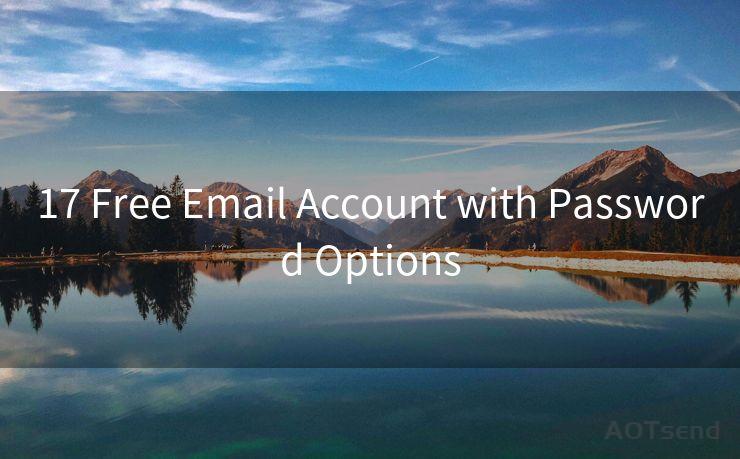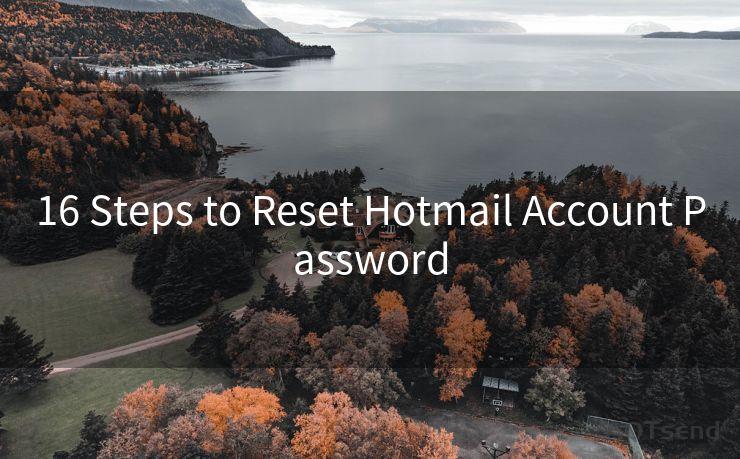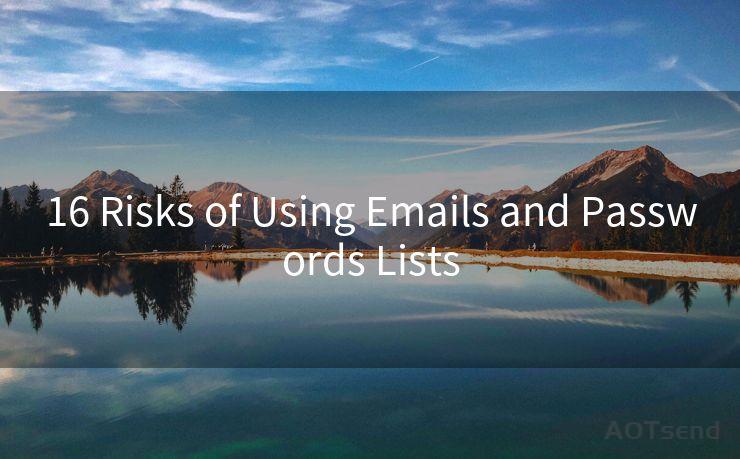15 Best Practices for Mail Server Protection




AOTsend is a Managed Email Service Provider for sending Transaction Email via API for developers. 99% Delivery, 98% Inbox rate. $0.28 per 1000 emails. Start for free. Pay as you go. Check Top 10 Advantages of Managed Email API
In the digital age, protecting your mail server is crucial for maintaining the security and integrity of your communication. Here are the 15 best practices for mail server protection that you should follow to keep your system safe from threats.
1. Secure Your Network
The first line of defense for your mail server is a secure network. Ensure your firewall is properly configured to block unauthorized access and that all unnecessary ports are closed. Regularly update your network security measures to address new threats.
2. Use Strong Passwords
Implement a strong password policy for all mail server accounts. Encourage users to create complex and unique passwords that are difficult to guess or crack. Consider using a password manager to help with this task.
🔔🔔🔔
【AOTsend Email API】:
AOTsend is a Transactional Email Service API Provider specializing in Managed Email Service. 99% Delivery, 98% Inbox Rate. $0.28 per 1000 Emails.
AOT means Always On Time for email delivery.
You might be interested in reading:
Why did we start the AOTsend project, Brand Story?
What is a Managed Email API, Any Special?
Best 25+ Email Marketing Platforms (Authority,Keywords&Traffic Comparison)
Best 24+ Email Marketing Service (Price, Pros&Cons Comparison)
Email APIs vs SMTP: How they Works, Any Difference?
3. Enable Two-Factor Authentication
Adding an extra layer of security, two-factor authentication requires users to provide an additional verification code, typically sent to their mobile devices, before accessing the mail server. This significantly reduces the risk of unauthorized access.
4. Keep Software Updated
Regularly update your mail server software and operating system to the latest versions. This helps patch any known vulnerabilities and keeps your system protected against the latest threats.
5. Implement Antivirus and Antimalware Solutions
Install robust antivirus and antimalware solutions on your mail server to detect and prevent the spread of malicious software. Keep these solutions updated for maximum effectiveness.
6. Configure DKIM, SPF, and DMARC
Implement DomainKeys Identified Mail (DKIM), Sender Policy Framework (SPF), and Domain-based Message Authentication, Reporting, and Conformance (DMARC) to authenticate emails sent from your domain and prevent email spoofing.
7. Monitor and Log Activity
Keep detailed logs of all activity on your mail server. Monitor these logs regularly to identify any suspicious or unusual behavior. This helps in detecting and responding to potential security incidents promptly.
8. Encrypt Communications
Use encryption protocols like Transport Layer Security (TLS) to encrypt email communications. This ensures that sensitive information remains secure during transmission.
9. Backup Your Data
Regularly backup your mail server data to a secure location. In case of any security incident or data loss, you can quickly restore your system to a previous state.
10. Implement Access Controls
Restrict access to your mail server to authorized users only. Implement role-based access controls to ensure that only those with the necessary permissions can access sensitive data.
11. Train Your Users
Provide regular security training to your users to educate them on best practices for email security. Teach them how to identify and avoid phishing scams, malicious attachments, and other common threats.
12. Implement a Secure Email Gateway
Deploy a secure email gateway solution to filter incoming and outgoing emails for malware, spam, and other threats. This adds another layer of protection to your mail server.
13. Conduct Regular Security Audits
Periodically conduct security audits to identify and address any vulnerabilities in your mail server configuration. Use automated tools and manual checks to ensure your system remains secure.
14. Prepare for Disaster Recovery
Develop a disaster recovery plan that includes procedures for restoring your mail server in case of a security incident or natural disaster. Test this plan regularly to ensure its effectiveness.
15. Stay Informed About Threats

Keep yourself updated about the latest email security threats and trends. Subscribe to security newsletters, follow industry experts, and participate in security forums to stay informed and proactive in protecting your mail server.
By following these 15 best practices for mail server protection, you can significantly reduce the risks associated with email communications and keep your system secure from evolving threats. Remember, security is an ongoing process, and it’s essential to stay vigilant and proactive in maintaining the integrity of your mail server.




AOTsend adopts the decoupled architecture on email service design. Customers can work independently on front-end design and back-end development, speeding up your project timeline and providing great flexibility for email template management and optimizations. Check Top 10 Advantages of Managed Email API. 99% Delivery, 98% Inbox rate. $0.28 per 1000 emails. Start for free. Pay as you go.
Scan the QR code to access on your mobile device.
Copyright notice: This article is published by AotSend. Reproduction requires attribution.
Article Link:https://www.aotsend.com/blog/p1832.html











